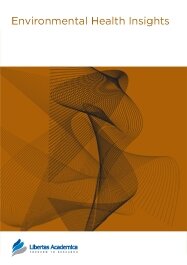

Publication Date: 31 Oct 2008
Journal: Environmental Health Insights

1Toxicology Unit, Dept. Psychobiology, University of A Coruña, Edificio de Servicios Centrales de Investigación, Campus Elviña s/n, 15071-A Coruña, Spain. 2Dept. Cell and Molecular Biology, University of A Coruña, A Coruña, Spain. 3Toxicology Laboratory, University of Vigo, Campus Ourense, Ourense, Spain.
Abstract
Since 1960, about 400 tankers spilled more than 377765 tons of oil, with the Prestige accident (Galician coast, NW Spain, November 2002) the most recent. Taking into account the consistent large number of individuals exposed to oil that exists all over the world, it seems surprising the absence in the literature of studies focused on the chronic effects of this exposure on human health. In this work we evaluated the level of DNA damage by means of comet assay, and the potential endocrine alterations (prolactin and cortisol) caused by Prestige oil exposure in a population of 180 individuals, classified in 3 groups according to the tasks performed, and 60 controls. Heavy metals in blood were determined as exposure biomarkers, obtaining significant increases of aluminum, nickel and lead in the exposed groups as compared to controls. Higher levels of genetic damage and endocrine alterations were also observed in the exposed population. DNA damage levels were influenced by age, sex, and the use of protective clothes, and prolactin concentrations by the last two factors. Surprisingly, the use of mask did not seem to protect individuals from genetic or endocrine alterations. Moreover, polymorphisms in genes encoding for the main enzymes involved in the metabolism of oil components were analyzed as susceptibility biomarkers. CYP1A1-3’UTR and EPHX1 codons 113 and 139 variant alleles were related to higher damage levels, while lower DNA damage was observed in GSTM1 and GSTT1 null individuals.
PDF (335.79 KB PDF FORMAT)
RIS citation (ENDNOTE, REFERENCE MANAGER, PROCITE, REFWORKS)
BibTex citation (BIBDESK, LATEX)
XML
PMC HTML
My experience in publishing our manuscript in Environmental Health Insights was positive. The speed of processing was the fastest of all the journals I have encountered. The peer review and editorial comments were to-the-point and professional. The open reader access greatly enhances article visibility. I would publish again in this journal if I have suitable studies to publish.

All authors are surveyed after their articles are published. Authors are asked to rate their experience in a variety of areas, and their responses help us to monitor our performance. Presented here are their responses in some key areas. No 'poor' or 'very poor' responses were received; these are represented in the 'other' category.See Our Results
Copyright © 2013 Libertas Academica Ltd (except open access articles and accompanying metadata and supplementary files.)
FacebookGoogle+Twitter
PinterestTumblrYouTube